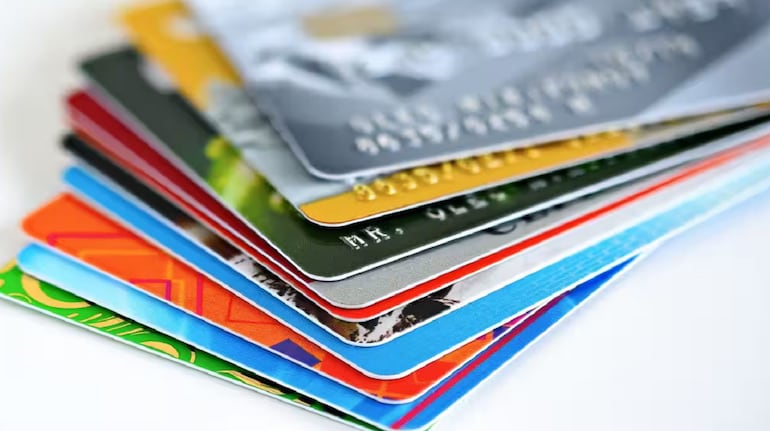Getting your first credit card is an exciting financial milestone, but it’s essential to approach this decision with caution. Credit cards can be powerful tools for building your credit history and managing expenses, but only if used wisely. Here are key factors to watch out for when choosing your first credit card:
1. Understand the fees and charges
Story continues below Advertisement
Credit cards come with various fees that can add up quickly if you’re not careful.
- Annual fees: Some cards charge annual fees, while others don’t. Make sure the benefits justify the cost if you choose a card with fees.
- Interest rates (APR): Look for cards with a low Annual Percentage Rate (APR), especially if you don’t plan to pay your balance in full each month.
- Other fees: Be aware of late payment fees, foreign transaction fees, cash advance fees, and over-limit fees.
Tip: Read the fine print to avoid surprises.
2. Evaluate the credit limit
- Your credit limit is the maximum amount you can charge on your card.
- A higher credit limit can provide flexibility, but it also increases the risk of overspending.
- For beginners, starting with a moderate credit limit is advisable to avoid debt accumulation.
- Tip: Use less than 30% of your available credit to maintain a good credit score.
3. Check the rewards and perksMany credit cards offer rewards programs that can save you money or provide additional benefits.
- Cashback cards: Earn a percentage of your spending back in cash.
- Travel rewards: Accumulate points or miles for flights, hotels, and other travel expenses.
- Other perks: Look for benefits like fraud protection, extended warranties, and discounts.
Tip: Choose rewards that align with your spending habits, such as groceries, dining, or travel.
4. Understand the introductory offers
Credit card companies often lure first-time cardholders with attractive introductory offers.
- 0% APR offers: These allow interest-free purchases for a limited time, but be cautious about the regular APR that kicks in afterward.
- Sign-up bonuses: Some cards offer bonuses for spending a specific amount within the first few months.
Tip: Don’t overspend to qualify for a bonus—stick to your budget.
5. Look at the credit card issuer’s reputation
Story continues below Advertisement
The issuer's customer service and policies matter.
- Research how responsive and helpful the card issuer is in case of disputes or issues.
- Check for user-friendly apps or online platforms to manage your card efficiently.
Tip: Established banks or credit unions often offer better reliability for first-time cardholders.
6. Assess the credit card type
Not all credit cards are created equal. Choose a type that suits your financial profile.
- Student credit cards: Ideal for young adults, offering lower credit limits and easier approval.
- Secured credit cards: Require a security deposit and are great for building or repairing credit.
- Basic credit cards: These may not offer many perks but are easier to manage and understand.
Tip: For first-time users, simplicity and accessibility are more important than fancy perks.
7. Understand repayment terms
The way you manage your repayment determines your financial health.
- Billing cycle: Know when your billing period starts and ends.
- Payment due date: Always pay on time to avoid late fees and penalties.
- Minimum payment: Paying only the minimum due may lead to interest accumulation, increasing your debt.
Tip: Always aim to pay your full balance each month to avoid interest charges.
8. Beware of hidden terms and conditions
- Many first-time cardholders overlook the fine print, which can lead to unexpected costs.
- Watch for clauses about changing interest rates or fees.
- Understand how your rewards can be redeemed—some have expiration dates or restrictions.
Tip: Take the time to read the terms and conditions thoroughly before signing up.
9. Check the impact on your credit score
- Your first credit card sets the foundation for your credit history.
- Regular on-time payments build a good credit score.
- High utilization or late payments can damage your score, making future borrowing harder.
Tip: Treat your credit card as a tool to establish credit, not as free money.
10. Align with your financial goals
- Your credit card should complement your financial goals, not hinder them.
- Use it responsibly to build your credit profile.
- Avoid unnecessary debt by spending within your means.
Tip: Set a personal budget for credit card use and stick to it to maintain control over your finances.
Buying your first credit card is a big step, but choosing wisely and managing responsibly can set you on the path to financial success. Focus on understanding fees, benefits, repayment terms, and how the card fits into your financial goals. With careful planning, your first credit card can be a valuable tool for building credit and managing expenses effectively.



